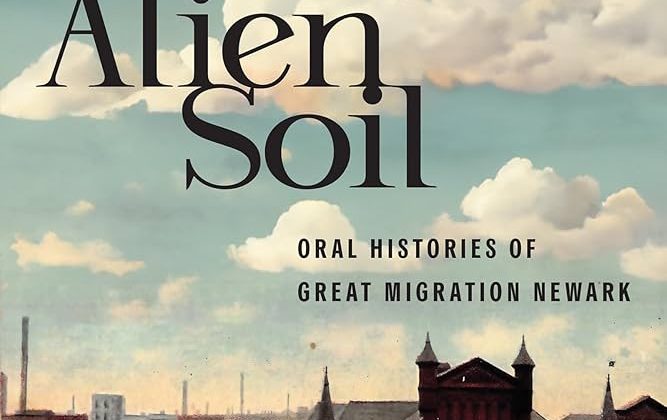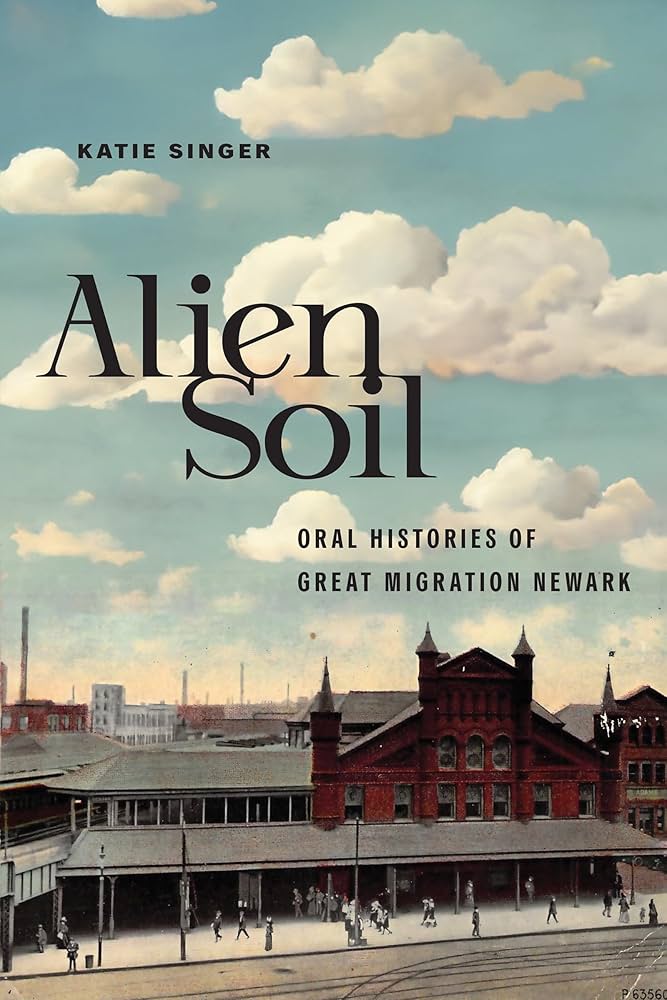

Katie Singer is a public scholar, writer, and activist. This interview is based on her new book, Alien Soil: Oral Histories of Great Migration Newark (Rutgers University Press, 2024).
JF: What led you to write Alien Soil?
KS: I wrote Alien Soil as a kind of tribute to the people whose stories were told in the Krueger-Scott African-American Oral History Project out of Newark, New Jersey. The interviews had been stored away on cassette tapes in the public library in the late 1990s after the project had nowhere to house the interviews. A fellow graduate student uncovered the collection in 2011 and organized a team of us to digitize and annotate the interviews for preservation and accessibility. Spending so much time with these people’s voices, it felt shameful that no one had had the chance to know all that they were saying. These were participants of the Great Migration, a pivotal historical era in our country’s history, yet their stories were left unheard. I ended up writing my dissertation foregrounding these narratives. And years later, Alien Soil was born.
JF: In 2 sentences, what is the argument of Alien Soil?
KS: The Great Migration era of American history transformed this country; the migration itself was a protest movement by African Americans against racism and violence. Until we listen to the stories of those who lived this history, we will not understand this country and the issues that plague us.
JF: Why do we need to read Alien Soil?
KS: It is necessary to read Alien Soil in the way that it is necessary to listen to interviews, watch documentaries, and go hear talks about and by people with lived experiences outside of our own. It is also necessary to provide readers, with whom these stories will resonate, the opportunity to see themselves and their families in words and images, and to share these stories with others in their communities. Perhaps most importantly, this book – as with other productions based upon primary sources – belies the myth that any one people, in this case Black people, are a monolith. That is important for every one of us to comprehend, for so very many reasons.
JF: Why and when did you become an American historian?
KS: I am an American historian sheerly by accident, or perhaps at least circuitously. I always thought I wasn’t interested in history, until I realized that history could not only be interesting but crucial to understanding why things are the way they are. And I have always had a desire to change how things are. So whether I was trying to understand why my institution at the time did not provide classes towards the African-American studies minor they claimed to offer, or how the American prison system had turned into a for-profit corporation, I had to look back in history for the answers. That is how effective activists throughout this country’s history have made the changes they have; and there is so much to learn from them.
JF: What is your next project?
KS: I’m in the midst of gathering sources for a book that would somewhat mirror Alien Soil, from the west coast perspective. Now that I have relocated to California, I want to hear the voices of Great Migration participants who chose to go west – specifically to Los Angeles – instead of the more typical move to the east and north. While there are several excellent books that cover LA during this period, I want to utilize my own skills as a behind-the-scenes writer of context and framework, foregrounding the stories of those who lived their lives during this important historical period.
JF: Thanks, Katie!